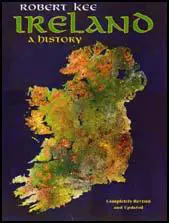Dublin

The Vikings established Dublin in the 9th century as one of its three great towns of north-western Europe outside Scandinavia. The city was captured by the English in 1171 and King Henry II encouraged people from England to settle in the area. By the 13th century Dublin Castle had become the seat of English royal administration.
In the 19th century Dublin was considerably expanded and was recognised as the second city of the British Isles. By 1900 nearly 26,000 families lived in 5,000 tenements. Over 20,000 families lives in one room and another 5,000 had only two rooms. Of the 5,000 tenements, over 1,500 were condemned as being unfit for human habitation.
The average death-rate in Ireland at this time was 17.3 persons per thousand of the population. In Dublin it was 24.8. Infant mortality was the main reason for this high death-rate. In 1901 an average of 168 babies died per 1000 births. The average for the rest of Ireland was 101 per 1000 births whereas in London it was 148 per thousand.
The other major killer in Dublin was tuberculosis. A report published in 1912 claimed that the death-rate from tuberculosis was 50 per cent higher in Ireland than in Scotland and England. The report added that in Dublin "the vast majority of deaths (from tuberculosis) occurred among the poorer classes, especially in the families occupying single-room dwellings."
In 1901 there were 9,397 men employed in industry in Dublin (printing, engineering, clothing, furnishing and leather tanning). Another 7,602 were in the carrying trade and a further 23,278 men were classified as labourers.
After 1919 the buildings of the British era were taken over by the recently established Republican government. For example, the former Mansion House became the first home of the new Parliament.
Primary Sources
(1) James Larkin, Freeman's Journal (12th August 1907)
O'Connell Street is crowded with English soldiers, to whom Irish girls have flocked from the Coombe and other parts of the city, where they have no fit home in which to stay. People have been lately complaining in the Press that they are followed in the street by children, or their elders, trying to gain the tenth part of a penny. It is easy to understand that people should be annoyed not to be left at peace, when they themselves are put 'to the pin of their collar' to keep a good roof over their heads. Nevertheless ought we not all to ask ourselves whether children go about bare-legged and ill-fed through mere perversity, and whether it is a natural, legitimate, and inevitable state of things that some people should be unable to feed themselves and their families.
(2) The Dublin Leader (8th October 1910)
O'Connell Street is crowded with English soldiers, to whom Irish girls have flocked from the Coombe and other parts of the city, where they have no fit home in which to stay. People have been lately complaining in the Press that they are followed in the street by children, or their elders, trying to gain the tenth part of a penny. It is easy to understand that people should be annoyed not to be left at peace, when they themselves are put 'to the pin of their collar' to keep a good roof over their heads. Nevertheless ought we not all to ask ourselves whether children go about barelegged and ill-fed through mere perversity, and whether it is a natural, legitimate, and inevitable state of things that some people should be unable to feed themselves and their families.
(3) Dudley Edwards, quoted in the Freeman's Journal (16th March 1912)
It was a regrettable fact that in Ireland (in 1900) the death-rate from tuberculosis was roughly 50 per cent higher than it was in Scotland and England.
(4) James Larkin, speech attacking employers in Dublin was quoted in the Freeman's Journal (6th October, 1913)
They take to themselves that they have all the rights that are given to men and to societies of men, but they deny the right of the men to claim that they also have a substantial claim on the share of the produce they produce, and they further say they want no third party interference. They want to deal with their workingmen individually. It means that the men who hold the means of life control our lives, and, because we workingmen have tried to get some measure of justice, some measure of betterment, they deny the right of the human being to associate with his fellow. Why the very law of nature was mutual co-operation. Man must be associated with his fellows. The employers were not able to make their own case. Let him help them. What was the position of affairs in connection with life in industrial Ireland? There are 21,000 families - four and a half persons to a family - living in single rooms. Who are responsible? The gentlemen opposite to him would have to accept the responsibility. Of course they must. They said they control the means of life; then the responsibility rests upon them. Twenty-one thousand people multiplied by five, over a hundred thousand people huddled together in the putrid slums of Dublin.
(5) James Larkin, Irish Worker (14th January, 1914)
Priest and parson, politician and press, and police authorities have admitted that there is a condition of things here in Dublin which is unequalled in Western Europe. Poverty stalks in your midst; disease is rampant; vice lifts its foul head naked, unashamed; sweating and overworking are ever present; underfeeding is plain to anyone with eyes to see; dirt, disease and death caused by the exploitation of the dispossessed worker by the unscrupulous unchristian employer; children rot and die in the slums; women are broken-hearted and degraded; men are dispirited and debauched owing to the wretched conditions of life. The only cure is clean honest administration of the city's affairs by clean, honest, intelligent men and women. Therefore, to you is given the duty to return such men.
